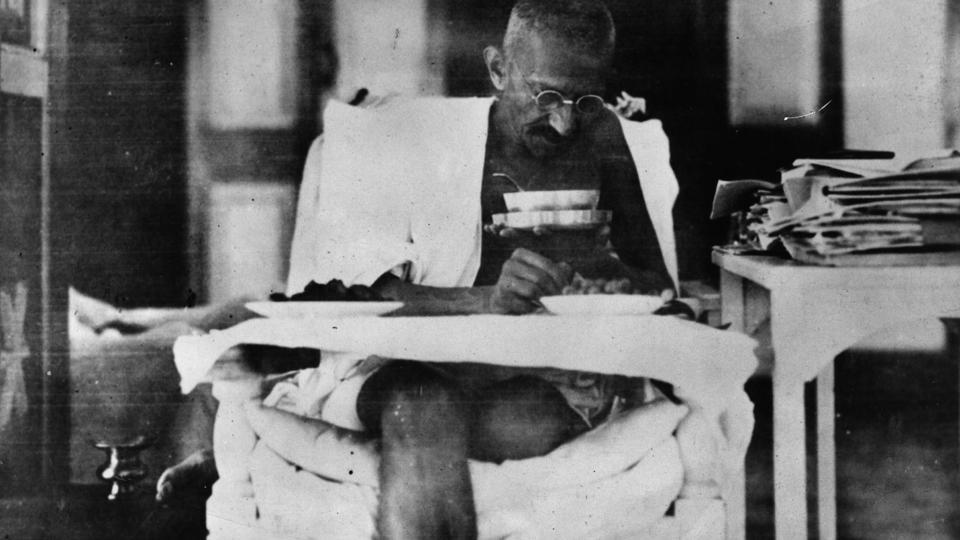In 1945, the writer-politician KM Munshi sent Mahatma Gandhi a copy of his historical novel Prithviballabh. Gandhi read it with interest, but also with some puzzlement. As he asked Munshi, ‘Can you, as a historian, forget the whole of Muslim history? Even if you can do so, can you make the whole of India forget it? Can you reverse the flow of water and make it go upward? After the British have left, will it be possible to wipe out all the consequences of the British connection off history?’
Gandhi’s remarks seem extremely relevant today, when BJP governments at the Centre and in the states seem determined to wipe out all traces of Muslim and British influence on India. In fact, they wish to go even further, by writing out some main actors of the freedom struggle and replacing them with Hindutva icons (such as MS Golwalkar and Deen Dayal Upadhyaya) who themselves played no part in winning independence for India.
Compared to other icons of the national movement – Aurobindo, Nehru and Rajaji for example – Gandhi was not a particularly learned man. His reading was eccentric rather than wide or deep. And the books he read were oriented towards religion and ethics, rather than works of history. However, scattered through Gandhi’s writings are some interesting reflections on the historian’s craft. Thus, in his book Hind Swaraj, written in 1909, Gandhi observed that historians had focused much more on violence than on non-violence. While ‘hundreds of nations live in peace’, he remarked, ‘history does not, and cannot, take notice of this fact.’
Historians were obsessed with the spilling of blood. Gandhi, however, believed that throughout history, non-violence had played a more active role in shaping human affairs than violence. As he put it, ‘The greatest and most unimpeachable evidence of the success of [non-violence] is to be found in the fact that, in spite of the wars of the world, it still lives on’.
The influential subaltern studies school of history-writing argued that the lives of workers and peasants were more significant than those of kings and generals. As it happens, Gandhi had anticipated the thinking of subaltern studies, and by more than fifty years. In a conversation with the Oxford scholar Verrier Elwin in May 1931, Gandhi said: ‘We have to rewrite our history books. History has ceased to be a record of the deeds of kings, and has become a record of the deeds of people, but it is still a record of the violent deeds of people’.
Historians had to write about the aam aadmi and not the khas aadmi, and they had to record struggles based on non-violence and not merely battles fought with guns, tanks, and bombs. Meanwhile, Gandhi also made a categorical distinction between history and myth. As he put it in 1930: ‘To us, however, the Mahabharata and the Ramayana are not historical works but treatises on religion. Or, if we call them histories, they narrate the history of the human soul; they do not tell of what happened thousands of years ago, but depict what takes place in the heart of every human being today’
Gandhi recognised that it was not always possible for historians to rise above their national or cultural biases. During the Non-co-operation Movement, he set up his own university, the Gujarat Vidyapith in Ahmedabad.
In a speech at the Vidyapith in June 1928, Gandhi remarked, ‘The teachers should consider what the history of India could be. A Frenchman writing a history of India will write it in a different way; so would an Englishman. An Indian looking into original records and studying Indian conditions would certainly write it differently. Do you believe as absolutely true the English accounts of the Anglo-French conflicts? Whoever wrote them might have written them correctly, yet they are written from his own point of view. He would narrate only those incidents wherein the English won. We would do the same. The French would do the same’.
In March 1945, a correspondent named Gope Gurbuxani asked Gandhi, ‘How can a historian best serve the country and how can he write a progressive history of India?’
To this query, Gandhi answered, ‘He can serve by writing a true and original history of the people. If there is progress he will describe the progress; if he finds there is decline he will record the decline.’
Gandhi’s credo remains as relevant as when it was first offered seventy years ago. The wider the ranges of sources a historian uses, the more original his work will be. And the less he suppresses facts (including unpleasant facts about his community or nation) the more true as well.
Gandhi would have deplored the current distortion of history to serve narrow political ends. For, as the remarks I have quoted here so emphatically demonstrate, Gandhi wanted historians to eschew both chauvinism and triumphalism. In his view, no religion or nation, no culture or civilisation, was perfect or flawless. From Gandhi’s point of view, a work of history that exalted Hindus at the expense of Muslims, or Indians at the expense of Englishmen, would be an exercise in jingoism, not scholarship.








